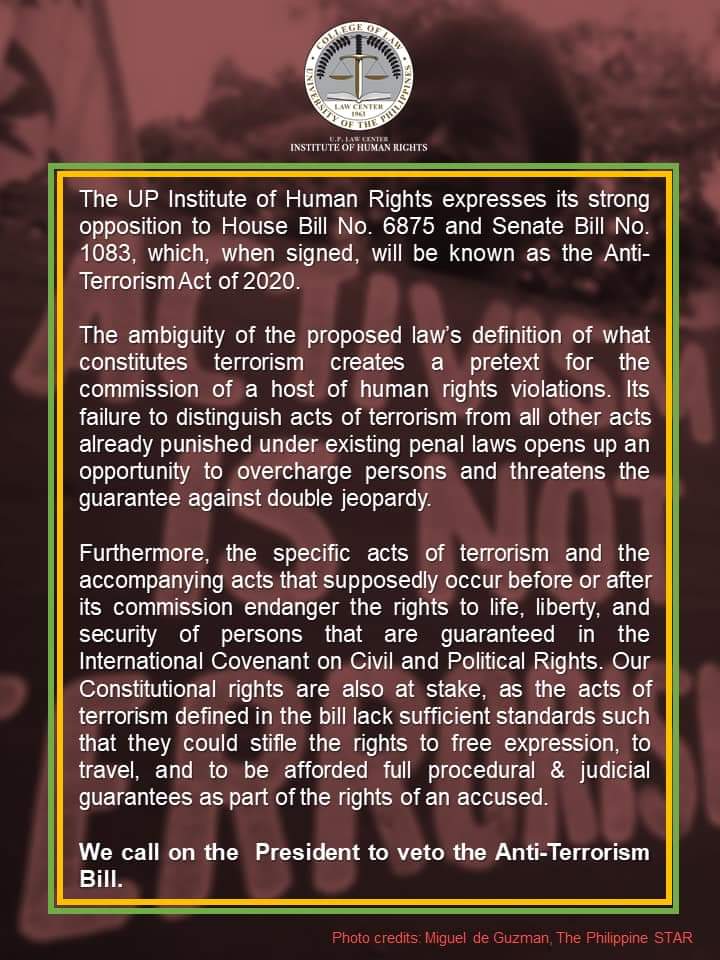Calling On The President To Veto Anti-Terrorism Bill
Even as the President has to still sign it into law, the “Anti-Terrorism Act of 2020” is causing trepidation in academia.
On 2 June the All UP Academic Employees Union issued a statement denouncing the bill — passed by both houses of Congress — under the rubric “De-Pacto Martial Law At Ang Mas Mabangis Na Anti-Terror Law.” This was followed by the Institute of Human Rights of the UPLaw Center, led by Professor Elizabeth Aguiling-Pangalangan, expressing its strong opposition to it and calling on the President to veto the Anti-Terrorism Bill.
In the meantime, Professor Antonio La Viña, human rights advocate and Constitutional Law teacher was interviewed on ANC’s program Headstart for his considered views on the subject.
“My greatest concern is that [Act] could be used against non-terrorists,” he said. For one there is no clear-cut definition of the provision on “inciting to terrorism,” which he explained, is loosely defined — it does not distinguish legitimate dissent from terrorism.
If enacted into law, the Anti-Terrorism Act of 2020 will repeal the Human Security Act of 2007.








































































































 on the upper right corner to select a video.
on the upper right corner to select a video.